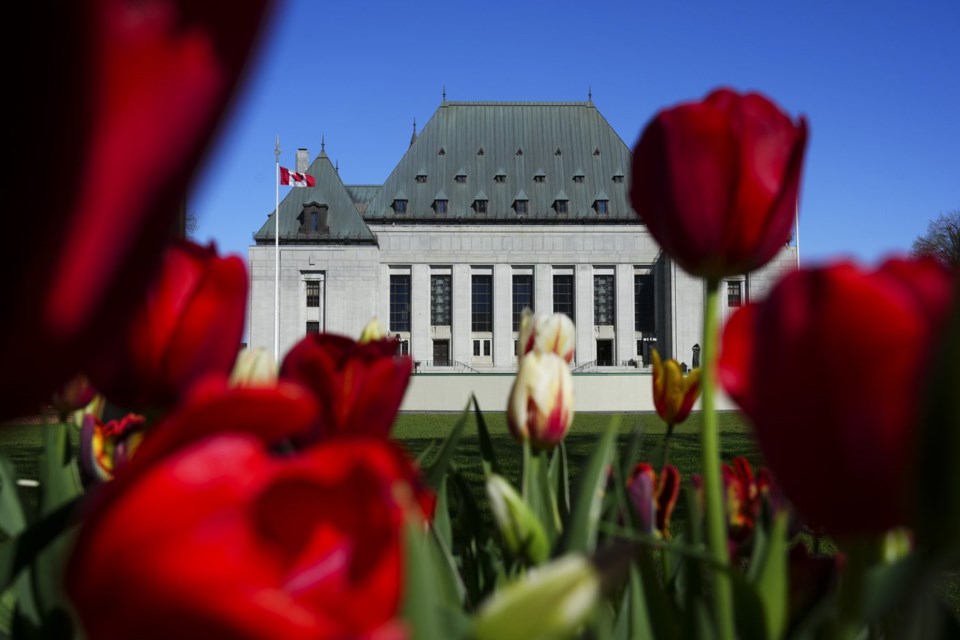OTTAWA — A man found guilty of sexually assaulting his long-time partner was properly denied a chance to present evidence about sexual activity they engaged in shortly before the offence, the Supreme Court of Canada has ruled.
The couple, who had been in a relationship for more than 20 years, took a trip in February 2018 and separated upon their return. The man moved into a basement room of their house.
The woman told police she and the accused had consensual intercourse on the evening of April 1, and that he sexually assaulted her the following morning.
The man, identified only as T.W.W., sought to introduce evidence at trial concerning the sexual activity the prior evening.
Evidence of a complainant's sexual history is presumed to be inadmissible. The principle is intended to avoid what is known as "twin-myth" reasoning — that the prior behaviour means the complainant is more likely to have consented to the alleged sexual activity, or that the complainant is less worthy of belief.
The trial judge dismissed T.W.W.'s application to present the evidence, ruling that the events of April 1 were not relevant to the issue of consent the following day.
The man's defence evolved during the proceedings, and he ultimately argued that the assault did not occur.
T.W.W. was convicted of sexual assault and he subsequently appealed.
A majority of British Columbia Court of Appeal dismissed the challenge. It said he had failed to establish how evidence of the April 1 sexual activity was key to his defence that a sexual assault did not happen the next day.
In its ruling Friday, the Supreme Court of Canada upheld the conviction while affirming the trial judge's decision to deny admission of the evidence.
Writing for a majority of the court, Justice Michelle O'Bonsawin said the "prior sexual activity evidence had no permissible purpose for either context or credibility."
She noted the law requires trial judges to first consider whether the evidence is inadmissible because it supports an inference relying upon one or both of the twin myths. "It is an error of law to admit evidence that supports twin-myth reasoning."
The fact that the couple previously had a sexual relationship is uncontested, she wrote. "For this reason, there could be no use for the April 1 evidence beyond twin-myth reasoning."
This report by The Canadian Press was first published May 24, 2024.
Jim Bronskill, The Canadian Press



